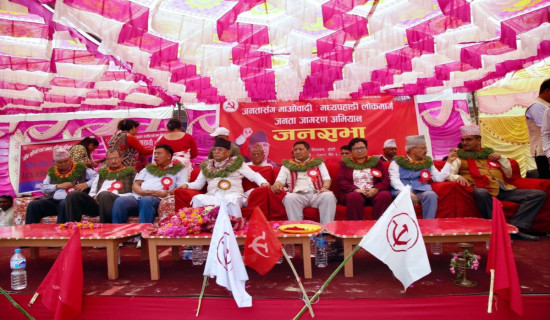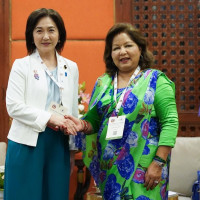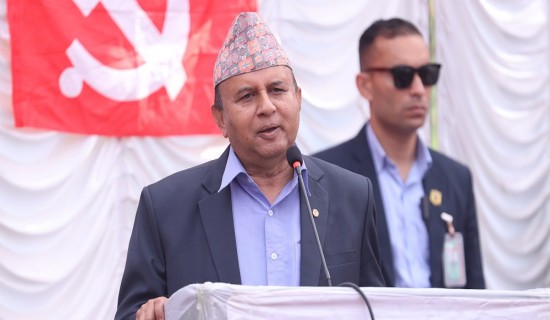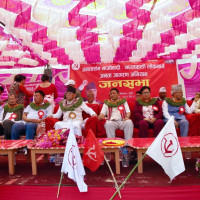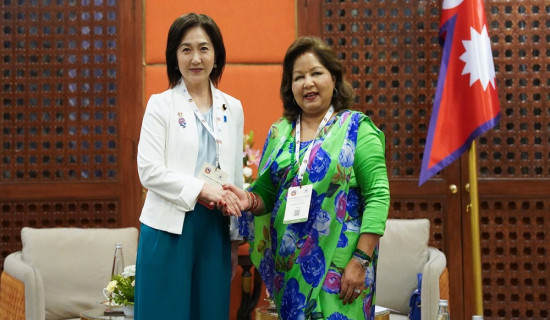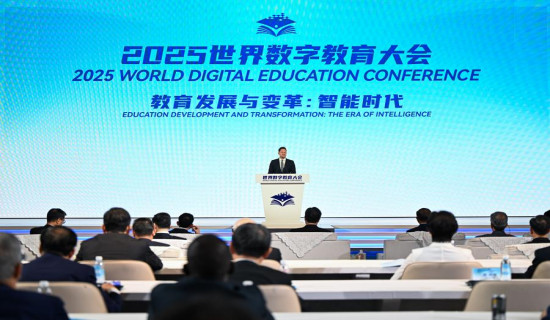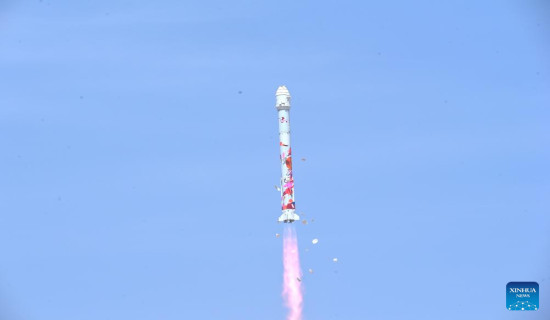- Saturday, 17 May 2025
Sagarmatha Sambaad: Stakeholders advocate for increasing clean energy production
Kathmandu, May 17: Stakeholders have stressed increasing production of clean energy for sustainable electricity.
Speakers of a session on 'Powering the future: Harnessing clean energy' organized as part of the ongoing Sagarmatha Sambaad argued enhanced use of clean energy was imperative to boost electricity production and promote export of clean energy.
Nepal Electricity Authority's Managing Director Hitendra Dev Shakya stated the climate change could cause drying up of the water sources, thereby adversely affecting power production. "We have been importing electricity from India to supply electricity during the winter as the sources of water dry up during this season," Shakya admitted, adding, "Another concern is locals' hostility towards process of installing transmission lines."
He brought to fore the irony that people want and need electricity but they do not want transmission lines around their houses. "The question is: How can we promote that now?" he wondered. Shakya acknowledged that reliable energy is indispensible for the electrification of the industries.
According to him, the transmission line in Nepal is very weak. He cited yesterday's incident of frequent power outages in Kathmandu due to line being cut several times.
"If one link breaks down, the entire system shuts down," he explained. Stating that private sector's participation was sought in the transmission network, he saw the need for regulatory mechanism for it.
The key issue as he argued is how to rope in the private sector. NEA does not have adequate fiscal resources. Hence, it is imperative to attract private sector, he pressed.
Likewise, Kathmandu University's Vice-Chancellor Dr Achyut Wagle spoke of the need to encourage both the government and private sector to promote the production and use of green energy. "We aim to cater to the minimum energy needs but how to manage the investment? Identifying the new sources of investment is crucial. Relying solely on the public investment will not be enough," he argued, underscoring effective implementation of international investment pledges for development and promotion of green energy.
Likewise, Dr Aditi Mukherji, Director at the Climate Change Adaptation and Mitigation Impact Action Platform Kenya, highlighted the need for high level capacity building, technology transfer and keeping the local communities at the centre of energy transformation.
"Nepal has emerged as one of the most positive and best examples in the Hindukush Himalayan region in terms of hydro power production. Royalties generated from hydropower projects are shared with the local communities. Rural communities have direct ownership in the hydro power projects. These are excellent practices for achieving judicious energy transitions involving local communities," she commended.
Similarly, Francesco La Camera, Director General of International Renewable Energy Agency, called for establishment of public fund to promote renewable energy such as solar energy. "For example, a portion of the regular income generated from solar energy sales should go into a public fund which can be mobilized to support the disadvantaged or vulnerable communities in the society. These communities might not be able to reap benefits initially or lag behind in urban based grid-system developments," he said, shedding light on the importance of such fund.
Moderator of the session, Shobhakar Dhakal, also Professor at the Asian University of Technology, illustrated that promoting the use of clean energy referred to global effort to supply society with renewable energy from renewable sources such as solar, wind power, geothermal and biomass.
The effort also entails reduction of dependence of fossil fuels, mitigation of climate change risks and achieving the Sustainable Development Goals.
More than 175 foreign delegates and similar number of Nepali distinguished personalities are attending the three-day dialogue in a bid to forge a unified response to global climate crisis. (RSS)



